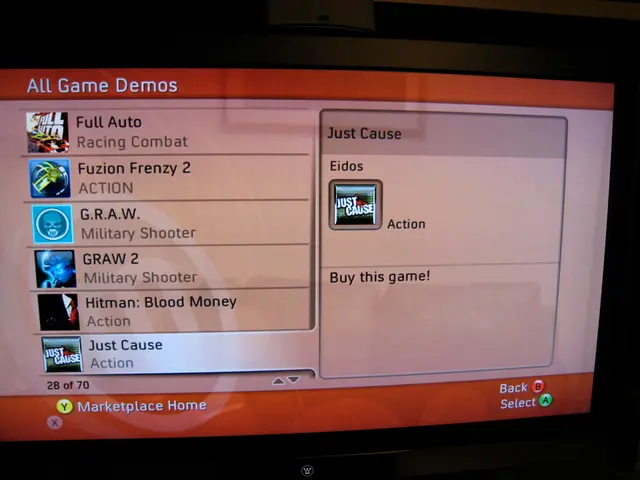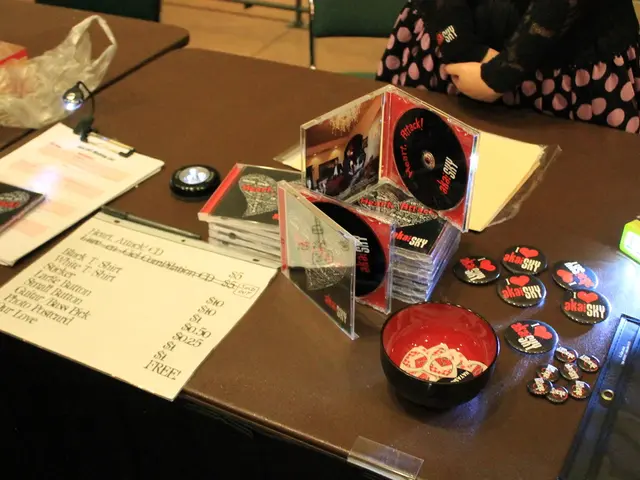Tightened restrictions set for online gambling payment methods in the Philippines
The Bangko Sentral ng Pilipinas (BSP), the central bank of the Philippines, has announced new regulations aimed at curbing online gambling and promoting responsible gaming behaviour. The regulations, which focus on digital payment platforms, are set to be implemented following stakeholder consultations [1][2].
On 7 August 2025, the BSP unveiled these stricter regulations, which include daily fund transfer limits, time-based restrictions on gambling payments, and enhanced identity checks [3]. The key regulations are:
- A daily fund transfer limit of 20% of the user’s average daily balance to online gambling accounts to mitigate excessive gambling payments.
- A daily time window of no more than six hours for processing online gambling-related transactions.
- The introduction of a "heavy usage" threshold, where upon reaching it, users must observe a mandatory 24-hour cooling-off period during which no further gambling payments are allowed.
- During this cooling-off period, mandatory pop-up alerts will warn users about gambling risks and encourage responsible play.
- Financial institutions and digital payment service providers must disable lending options linked to e-wallets associated with online gambling accounts.
- Online gambling advertisements on digital payment platforms are only allowed if users explicitly opt-in.
- Employees of financial institutions are prohibited from engaging in online gaming activities.
- Enhanced due diligence requirements for payment operators serving online gambling services and mandatory approval from BSP for these providers.
These measures are designed to reduce financial and social risks associated with online gambling while promoting responsible gaming behaviour. The regulations also aim to prevent fraud in digital financial services [4].
The allegations of missing cockfighters have sparked increased scrutiny of the gambling industry in the Philippines. However, the new regulations do not explicitly mention cockfighting. Instead, they apply to online gambling activities [5]. Cockfighting, a popular activity in the Philippines, has been under scrutiny following allegations of missing cockfighters buried near Taal Volcano.
The new regulations will require users to take voluntary breaks or self-exclude from gambling transactions. They will also mandate enhanced identity checks, including biometric verification such as facial recognition [3]. Financial service providers will be required to offer tools that let users set personal spending caps [3].
These stricter regulations on online gambling transactions are part of the BSP’s efforts to strengthen safeguards against online gambling and minimize financial harm caused by online gambling [1][3][5]. The BSP is currently finalizing these rules, and the draft circular reflects growing regulatory focus on controlling the use of e-wallets and digital payments for gambling in the Philippines.
- The Bangko Sentral ng Pilipinas (BSP) has introduced stricter regulations in the gambling industry, focusing on online gambling and promoting responsible gaming behavior.
- The new regulations, set to be implemented following stakeholder consultations, include daily fund transfer limits, time-based restrictions, and enhanced identity checks.
- A daily fund transfer limit of 20% of the user’s average daily balance to online gambling accounts has been established to mitigate excessive gambling payments.
- The regulations also mandate a daily time window of no more than six hours for processing online gambling-related transactions.
- Upon reaching a "heavy usage" threshold, users will be forced to observe a mandatory 24-hour cooling-off period, during which no further gambling payments are allowed.
- Financial institutions and digital payment service providers are prohibited from offering lending options linked to e-wallets associated with online gambling accounts.
- The new regulations on online gambling aim to reduce financial and social risks, prevent fraud in digital financial services, and promote responsible gambling, but do not explicitly mention cockfighting, which has been under scrutiny following allegations of missing participants.






